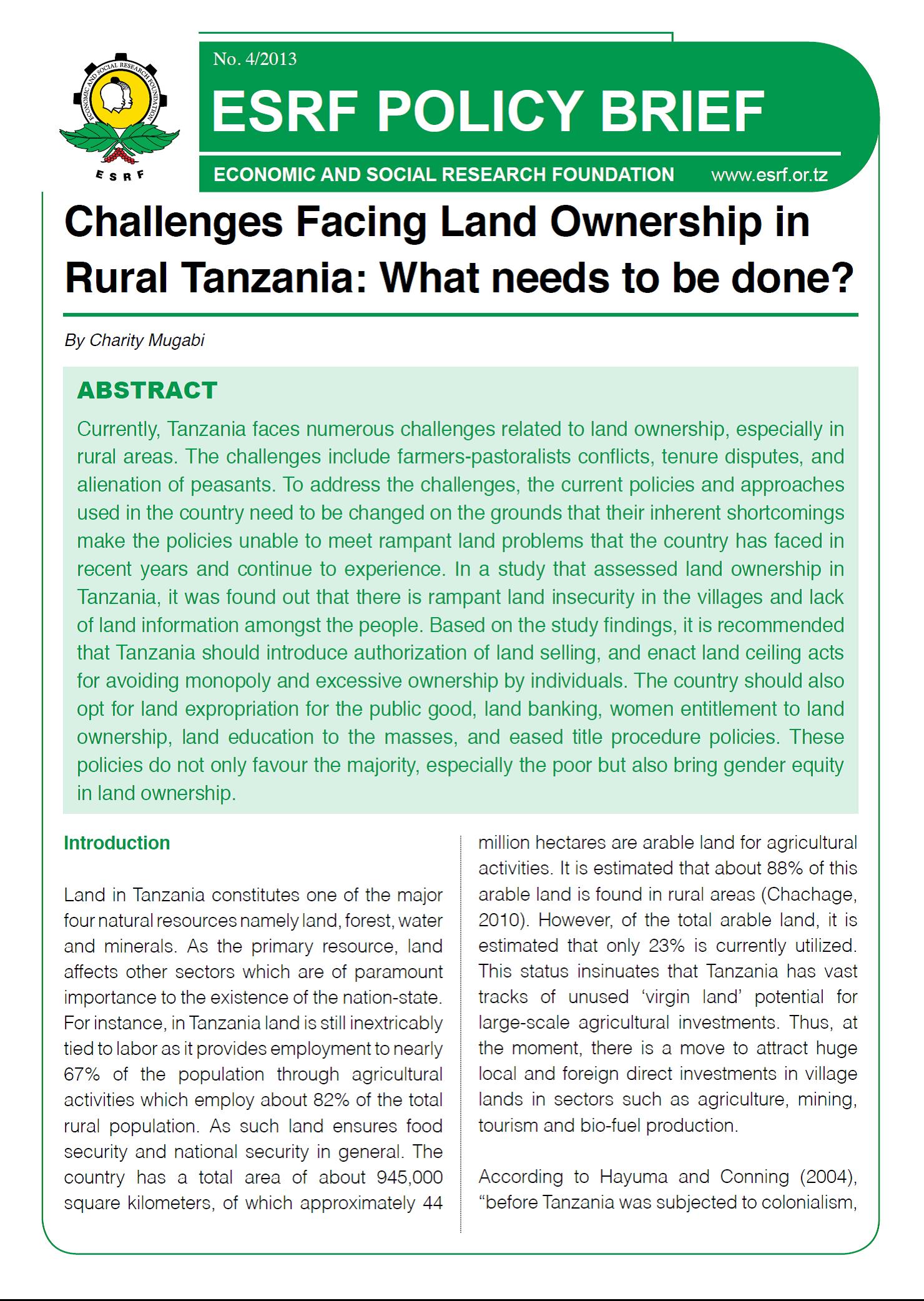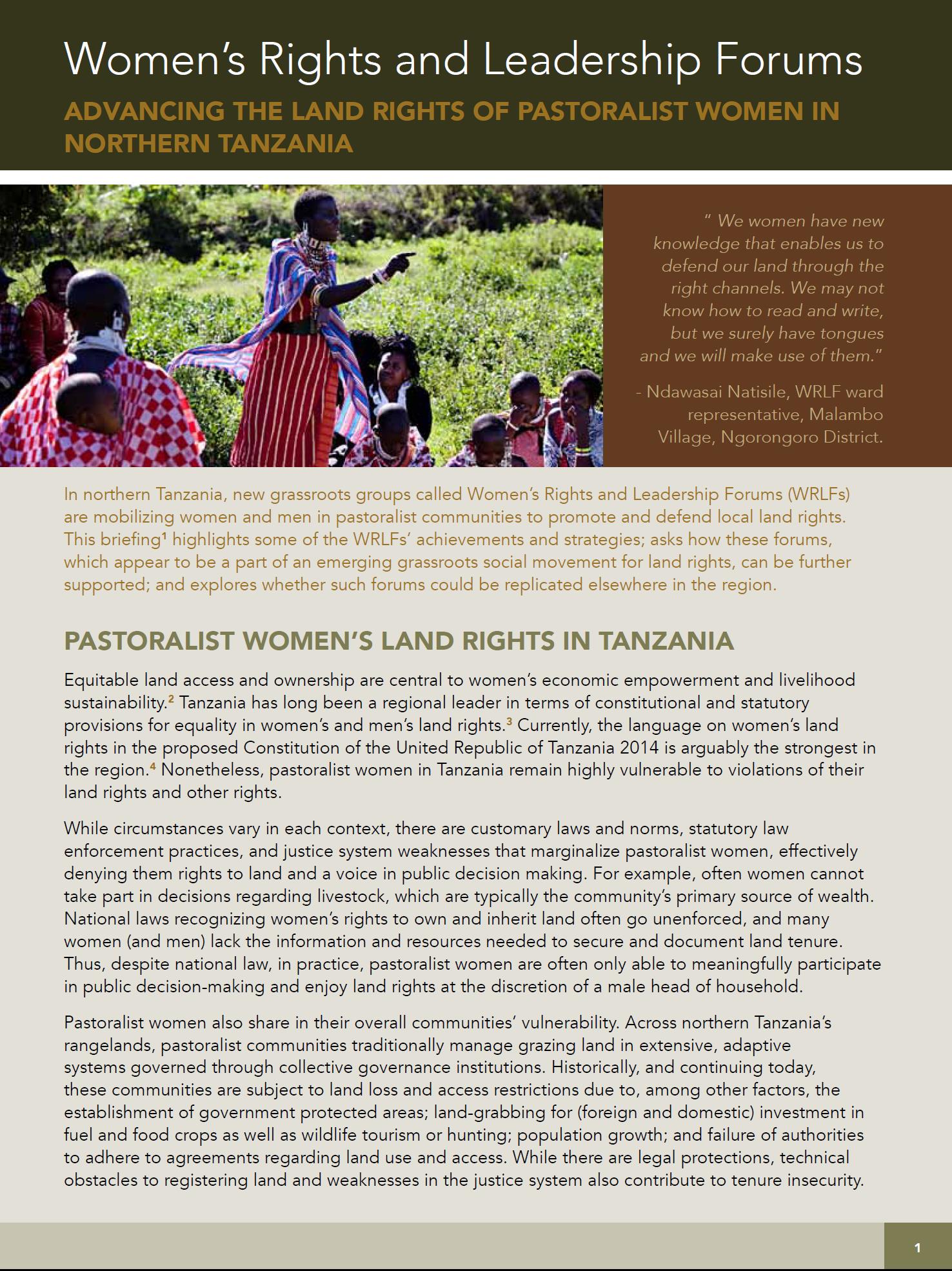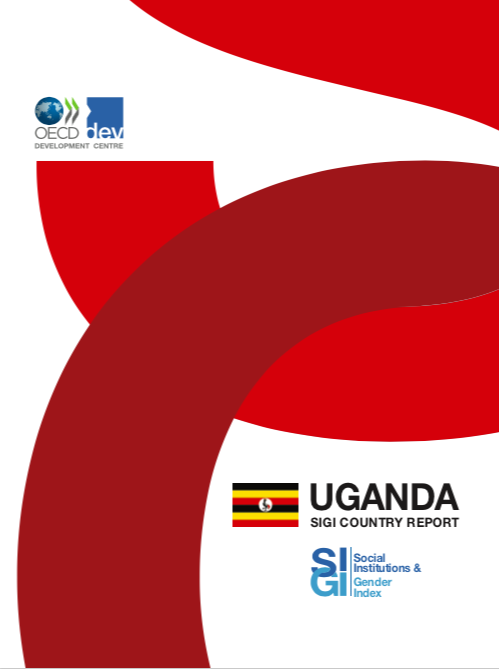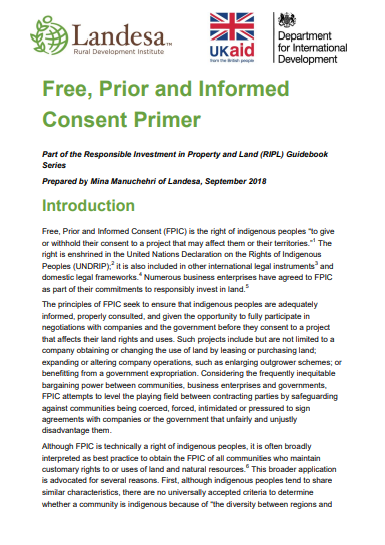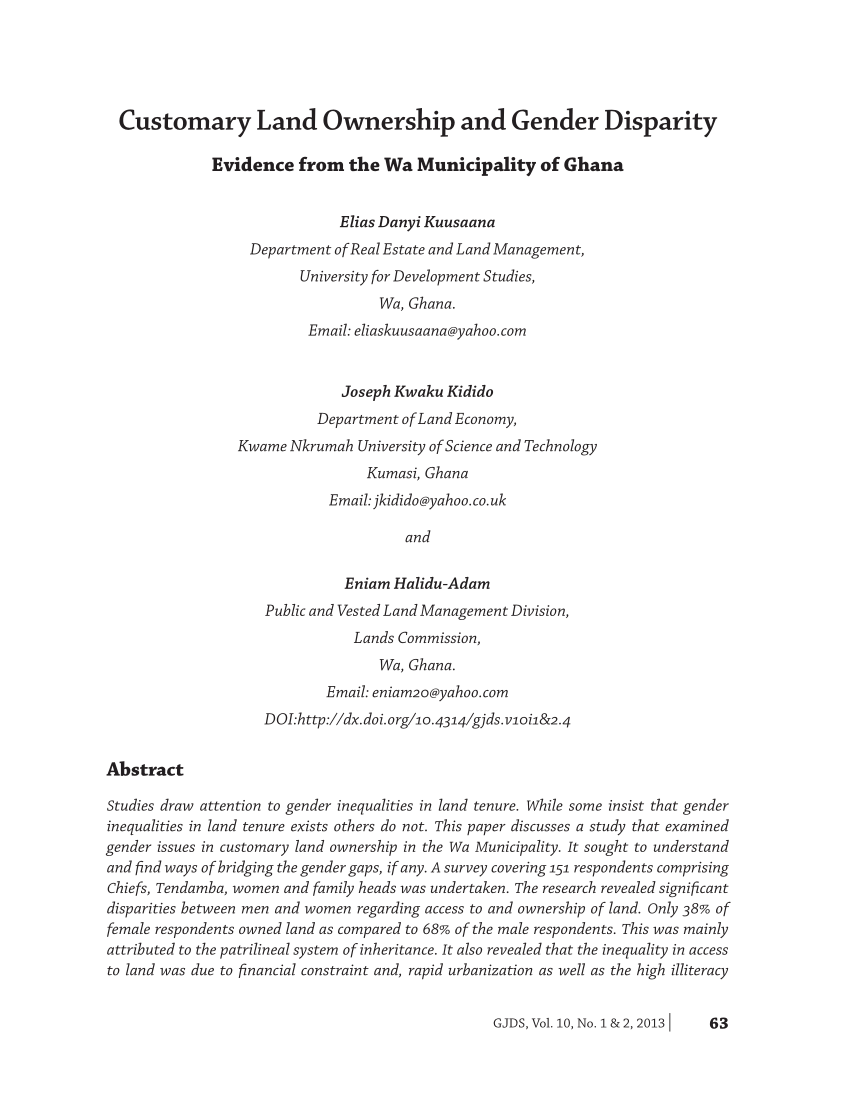Governing land for women and men: A technical guide to support the achievement of responsible gender-equitable governance of land tenure
This technical guide on Governing land for women and men aims to assist implementation of the Voluntary Guidelines on the Responsible Governance of Tenure of Land, Fisheries and Forests in the Context of National Food Security (FAO, 2012b) by providing guidance that supports the Guidelines’ principle of gender equality in tenure governance. At the beginning of each module, reference is made to the relevant provisions in the Guidelines.


